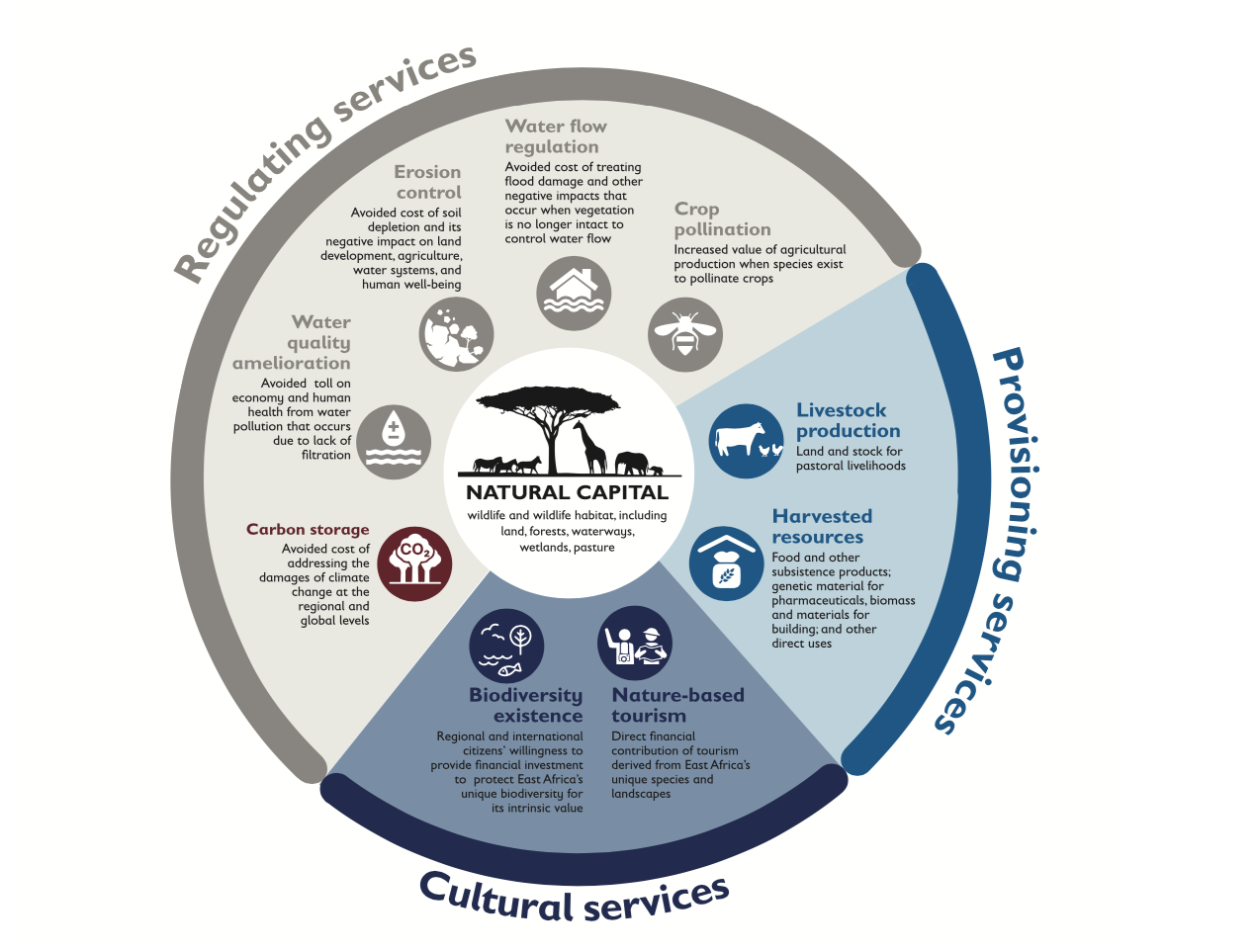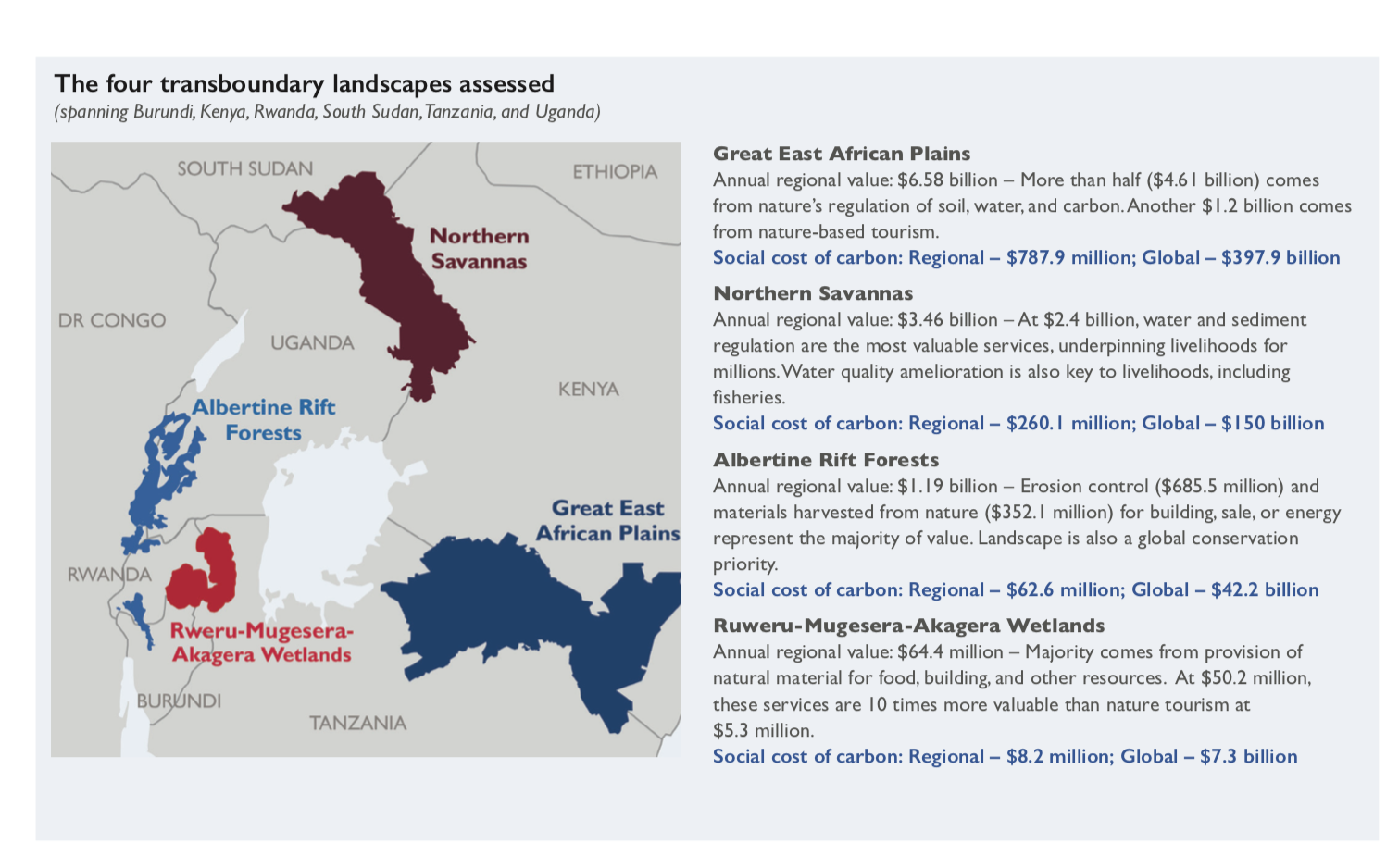
Conservation and Management of Natural Capital in East African Community Program under USAID/Kenya & East Africa Support (2019-2022)
The improving collaborative Conservation and Management of Transboundary Natural Resources in the East African Community program was implemented since June 2019. The program has three specific purposes:
- Enhance collaborative management and conservation of transboundary natural resources:
- Outcome 1: Regional Policy Harmonisation Strengthened.
- Outcome 2: Improved sustainable management of key transboundary landscapes;
- Increase perceived value of living wildlife:
- Outcome: Increased awareness of the economic and intrinsic value of living wildlife;
- Reduce wildlife poaching and trafficking:
- Outcome 1: Reduced demand for wildlife and wildlife products;
- Outcome 2: Improved regional and bilateral collaboration on enforcement and prosecutions.
In this context, under the five-year Regional Development Objective Grant Agreement (RDOAG), EAC Secretariat with support from USAID Kenya and East Africa (USAID/KEA) has coordinated the implementation of the three years program. Tremendous achievements for the three years have been realized so far under the program in a bid to improve conservation and management of the natural capital in the region.
Under outcome 1.1 i.e., strengthened regional policy harmonization:
- The Protocol on Environment and Natural Resources Management has been revised by incorporating Partner States comments and emerging issues from the regional, continental, and global policy discourse;
- Draft Regional Biodiversity Strategy and Action Plan (RBSAP) and Project on its initial implementation have been developed to strengthen the regional coordination and collaborative efforts on biodiversity conservation and transboundary ecosystems management;
- Development of the EAC Wildlife Conservation and Management Policy is underway and the development of the EAC Wildlife Conservation Strategy has been initiated.
Further, under outcome 1.2 i.e. improved sustainable management of key transboundary landscapes and outcome 2.1 i.e., increased awareness of the economic and intrinsic value of living wildlife:
- The project supported and facilitated the EAC Environmental Week (2021) and LVBC’s Mara Day Celebration. The two events were organized to raise awareness on environmental conservation and the need for strengthening coordination and collaboration in managing shared ecosystems;
- The development of the Ecological Mapping and Monitoring Framework (EMMF) is also on going to improve planning and management of key transboundary landscapes in the region;
- Support the implementation of the Anti-poaching strategy, sensitization, awareness creation and training activities in Transboundary Ecosystems;
- Economic Valuation of Natural Capital Process has been undertaken in:
a) Great East African plains (Kenya & Tanzania),
b) Northern Savannahs (Kenya, Uganda & South Sudan),
c) Albertine Rifts Forests (Uganda, Rwanda & Burundi),
d) Rweru-Mugesera-Akagera Wetlands (Rwanda, Burundi & Tanzania).
The valuation has shown various contributions of natural capital to sustainable development and human wellbeing – including ecological, genetic, social, economic, scientific, educational, cultural, recreational and aesthetic in EAC region;
- EAC Regional Multi-stakeholders Policy and Learning Platforms on Conservation and Sustainable Development is scheduled in June 2022. It is expected the platform to mobilize resources to address the challenges of funding gap in the management of natural resources in EAC region; and
- EAC and LVBC effective participation in the regional and international biodiversity for a has been supported. The participation has strengthened East African leadership and capacity building to enforce adherence to multilateral environmental agreements (MEAs) such as the Convention on Biological Diversity (CBD), the Convention on International Trade in Endangered Species (CITES) and other regional agreements including the EAC Protocol on Environment and Natural Resources Management and the Lusaka Agreement Task Force (LATF).